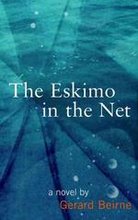The Narrative Is the Glue
Greenaway swings by. "A few more things to say about text."
"I like text."
"I know you do. That's why you are a writer and I am a film maker. We all know that literature is superior to cinema as a form of storytelling. It empowers the imagination like no other. If you want to be a storyteller, be an author, be a novelist, be a writer, don't be a film director."
"We all do know that, don't we?"
" Cinema is not the greatest medium for telling stories. It is too specific, leaves so little room for the imagination to take wing other than in the strict directions indicated by the director. Read "he entered the room" and imagine a thousand scenarios. See "he entered the room" in cinema-as-we-know-it, and you are going to be limited to one scenario only. The cinema is about other things than storytelling."
"I think I'm getting the point now."
"What you remember from a good film-and let's only talk about good films-is not the story, but a particular and hopefully unique experience that is about atmosphere, ambience, performance, style, an emotional attitude, gestures, singular events, a particular audio-visual experience that does not rely on the story. Besides, nine times out of ten, you will not remember the story. And if you do, and you tell it, and you are talking in words, then you are back to literature, and the cinematic experience is not communicated that way. "
"You're right. You're right."
"For the moment we have not found anything better, and because we are lazy, the narrative is the glue we use to hold the whole apparatus of cinema together. There is much to say that D.W. Griffith, proud manufacturer of Intolerance, took us all in the wrong direction. He enslaved cinema to the nineteenth-century novel. And it is going to take a hell of a lot of convincing to go back, right the wrong, and then go forward again. But I have hopes. I do really believe that we are now developing the new tools to make that happen. Tools, as Picasso said of painting, that will allow you to make images of what you think, not merely of what you see, and certainly not of what you read."
So Greenaway makes his departure - exit stage left. And Dead Beat is left with his words. So too are you.
The distinction between cinema and writing. He has a lot to teach us, listen well.










No comments:
Post a Comment